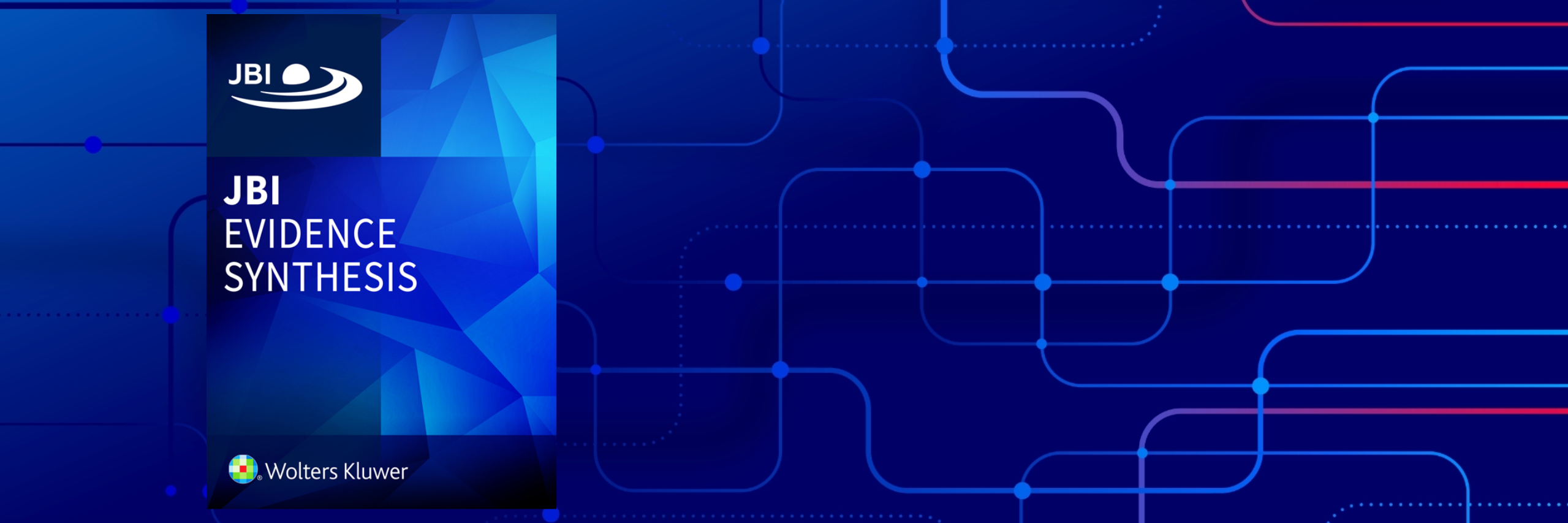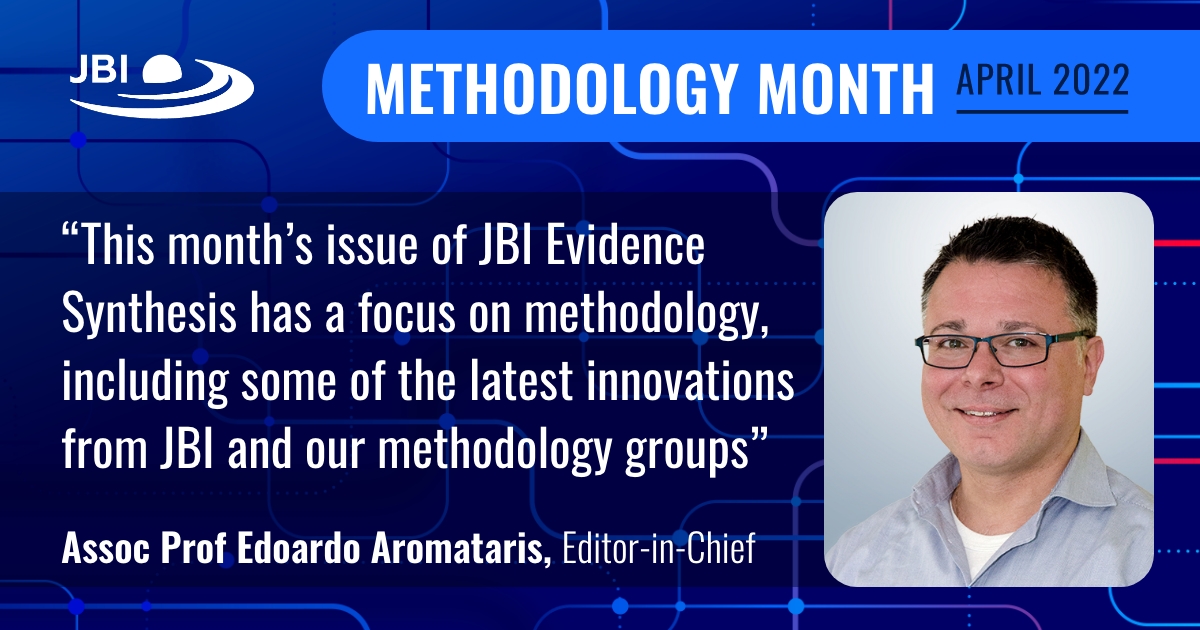
JBI releases methodology updates and position statement
With the publication of JBI Evidence Synthesis, JBI releases the latest developments in methodology and a position statement on rapid reviews
A special issue of JBI Evidence Synthesis has just been released to coincide with the inaugural JBI Methodology Month. The methodology-themed issue focuses on some of the latest developments in methodology from JBI and the JBI methodology groups focused on synthesis, as well as systematic reviews focused on methodology and conduct of research.

‘Importantly, this issue presents JBI’s position statement on rapid reviews’, says Editor-in-Chief, Assoc Prof Edoardo Aromataris. ‘These evidence synthesis products attempt to solve the seemingly insatiable need for evidence to inform decision making quickly, however in doing so introduce a conundrum regarding comprehensiveness and rigor of conduct when compared to a JBI systematic review that inevitably takes a much longer time to complete.’
The JBI position statement, Rapid reviews and the methodological rigor of evidence synthesis is free access, and complemented by video discussion with two of the authors, Assoc Prof Zachary Munn and Dr Danielle Pollock.
Assoc Prof Munn and Dr Pollock also provide discussion in a video abstract on editorial, What are scoping reviews? Providing a formal definition of scoping reviews as a type of evidence synthesis.
The April issue of JBI Evidence Synthesis includes some of the latest guidance and recommendations from the JBI Scoping Review Methodology Group, for example Best practice guidance and reporting items for the development of scoping review protocols:
‘The article provides explanation of the importance of each section of the protocol and what it should be detailing, with examples. Fifteen items with sub items are recommended for comprehensive reporting and examples of are presented with considerations of the current PRISMA-P reporting statement for systematic review protocols', says Assoc Prof Aromataris.''This is essential reading for any reviewer starting a new scoping review project.'
More guidance from the JBI Scoping Review Methodology Group is provided in Moving from consultation to co-creation with knowledge users in scoping reviews. ‘[This] article provides consideration and recommendations for the inclusion of knowledge users during the conduct of scoping reviews; benefits include improved relevance of the research and potential for improved implementation of research findings’, explains Assoc Prof Aromataris. Lead author, Dr Pollock, provides a video abstract of the article.
‘The remaining reviews in this issue include a methodological review revealing the poor quality of conduct of available systematic reviews investigating prophylactic central neck dissection for well-differentiated thyroid carcinoma, and an umbrella review similarly investigating the quality of both conduct and reporting of systematic reviews assessing measures of evidence-based practice. These authors similarly identify multiple instances of deficits in conduct and risk of bias in the included reviews.’
The third review, a scoping review, examines the literature on the use of the Functional Resonance Analysis Method (FRAM) in healthcare research and aims to map the methods that have been used to operationalise the FRAM in healthcare research. The paper, The Functional Resonance Analysis Method as a health care research methodology is complemented by a video abstract by lead author, Alexis McGill.
Finally, ten protocols on various topics are published in this issue, including the scoping review protocol, Methodological quality, guidance, and tools in scoping reviews.
See the table of contents for the full listing of articles published in the special, methodology-themed issue of JBI Evidence Synthesis.